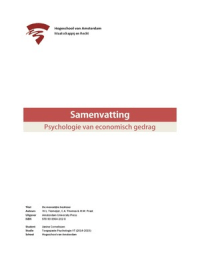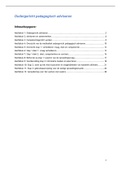Samenvatting
Samenvatting - De Menselijke Beslisser - Tiemeijer, Thomas en Prast
- Vak
- Instelling
Volledige samenvatting van de leerstof uit het boek 'De Menselijke Beslisser' van het vak 'Psychologie van economisch gedrag'. D.m.v. deze samenvatting een 9 behaald voor het tentamen.
[Meer zien]





